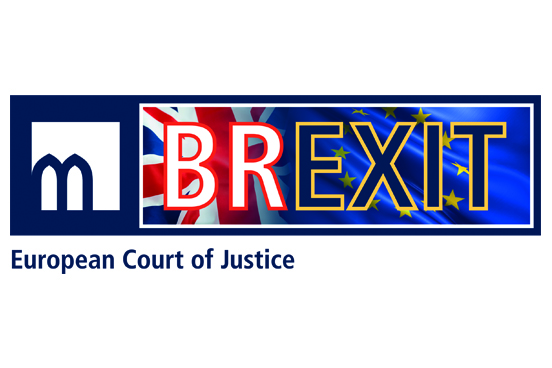Author
In a follow-up to her October 2018 article, we considered the much anticipated European Court of Justice (ECJ) emergency judgment confirming that the UK can unilaterally cancel Brexit.
In a critically timed decision which coincided with the planned House of Commons’ vote on Theresa May’s Brexit deal, the ECJ ruled that the UK is “free to revoke unilaterally the notification of its intention to withdraw from the EU”.
The expedited ruling made clear that any Member State which had notified the European Council of its intention to withdraw from the European Union could retract that intention for as long as a withdrawal agreement had not come into force or, if no such agreement has been concluded, for as long as the two-year period from the date of the notification of the intention to withdraw had not expired.
The ECJ stated that one of the objectives of Article 50 of the Treaty on European Union was to enshrine “the sovereign right of a Member State to withdraw from the European Union” and subsequently, any revocation of that Member State’s intention to withdraw reflected that Member State’s “sovereign decision to retain its status as a Member State of the European Union“. The UK’s unilateral sovereign right to revoke therefore cannot be subject to the consent of the other 27 EU Member States.
This mirrors legal advice given to the ECJ last week by its advocate general who said that Britain, as a sovereign country, could reverse its decision even at this last stage. The decision is significant as it means that the UK could now prevent a no-deal Brexit if it wants.
The ECJ’s decision comes at a crucial time for the Prime Minister, whose Brexit deal was about to be voted on in the House of Commons. The vote has now been delayed after it became clear that May would lose it by a significant margin. She hopes to be able to persuade the remaining 27 EU countries to renegotiate the Brexit deal notwithstanding confirmation from the European Council that it would not reopen discussions.
The implication of the ECJ’s decision is that the UK parliament has the power to halt the Brexit process if it chooses. The government had opposed the decision vigorously when it was heard initially by the Scottish Court of Session, which then referred the case to the ECJ for a ruling.
The Supreme Court ruled last year that parliament must vote to trigger Article 50; the same is likely to apply to any revocation by parliament of the Article 50 notification to withdraw. The ECJ stated that any revocation “must be decided following a democratic process in accordance with national constitutional requirements.”
As opposed to being faced with only two options of “no deal” or Theresa May’s deal the ECJ has essentially now created a third option; cancelling Brexit altogether. However, new legislation is likely to be needed to reverse the notification of the UK’s intention to withdraw.
We watch this space…
If you would like more information on this topic, please contact our Commercial & Regulatory Disputes team.
Print article

